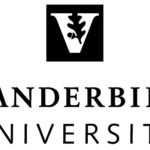About Master’s Program,
Founded in 2003, the Graduate Program in Creative Writing offers a two-year Master of Fine Arts Degree in the areas of fiction and poetry. Though small—we typically admit six new students each year—the MFA is just one part of a vibrant writing community including five or six post-graduate fellows, former fellows and alums, PhD candidates in contemporary literature, and a host of other artists and writers living and working in Madison. Our MFA is unique in that we have an “alternating genre” admissions policy: we accept fiction applications in the fall/early winter of odd-numbered years, and poetry applications in the fall/early winter of even-numbered years. This allows us to provide an almost unrivaled 2-to-1 student/teacher ratio that gives each class of students the full attention of the faculty in their genre for two solid years.
All of our MFA candidates receive generous financial aid, the opportunity to teach courses both in Creative Writing and English Composition, and a semester of teacher-training and support. Our MFAs also have the opportunity to take workshops in other genres, including fiction, poetry, creative nonfiction, playwriting, and comics. While cross-genre writing certainly isn’t mandatory, many of our students report that taking workshops outside their primary area not only improves their writing in multiple genres, but also leads to even greater camaraderie among all the writers in the program.
Our MFAs have access to a truly multi-generational community of writers at every stage of their careers. MFAs interact frequently with our Wisconsin Institute for Creative Writing fellows, who are some of the best recent MFA recipients in the country, and both the fellows and faculty are always on-hand to provide advice about publishing, teaching, and pursuing a career in writing.
To get some sense of the scope of the Madison writing community, and the diversity of nationally acclaimed poets and fiction writers who cycle regularly through town, we encourage you to take a look at the roster of authors who’ve cycled through Madison with the Wisconsin Book Festival. Our MFAs have sat down for meals and conversation with visiting writers such as Michael Cunningham, Jericho Brown, Ayana Mathis, Eileen Myles, Marie Howe, Mark Doty, Jonathan Franzen, Terrance Hayes, Adam Haslett, Alice Notley, Tommy Orange, Solmaz Sharif, Tiana Clark, Claire Vaye Watkins, and Lauren Groff, as well as regular visiting editors and agents on the lookout for the next generation of American literature.
Master’s Program Degree Eligibility with GPA,
The two-year MFA course of study is designed to provide as much time as possible for independent writing and reading. The degree requires 42 credits as follows:
- 9 credits of writing workshopsin the student’s primary genre (fiction or poetry). These workshops are held in the first, second, and third semesters.
- 3 credits of pedagogy, during the first semester.
- 15 thesis credits. Students take 3 credits in each of the first, second and third semesters, then 6 thesis credits in the fourth semester. These are not courses—rather, they’re the means by which the University gives MFAs credit for their independent writing.
- 15 credits of electivesdrawn from appropriate courses across the curriculum. While students are expected to focus on and produce book-length theses by the end of their two years here, they are also encouraged to pursue other intellectual interests via these electives. In the past, MFA students have fulfilled their elective requirements by enrolling in literature courses, studying foreign languages, pursuing other artistic interests such as dance, book-making, and classical guitar, augmenting research for historical novels by taking appropriate history classes. MFA students may also hone their writing skills in other genres by taking intermediate and advanced undergraduate workshops and graduate level workshops in genres outside the one for which they were admitted, as electives with the permission of the instructor. Students may also take up to 6 elective credits in the form of additional thesis hours in the second and third semesters.
Master’s Funding Coverage,
There is no application process for financial aid. All accepted MFA candidates regardless of residency or nationality receive tuition remissions (i.e., free tuition), teaching assistantships, generous health insurance (the same as faculty) and other financial support. Each MFA receives at least $30,000 in support each year, through TAships and scholarships.
Renk Distinguished Graduate Fellowship in Poetry
One poet will be awarded a Martha Meier Renk Distinguished Graduate Fellowship in Poetry upon admission to the program. During each semester of the first year, the Renk Fellow will receive the same teaching assistantship (i.e., teaching English 207), tuition remission, and generous health benefits as the other MFAs in Poetry. During the Renk Fellow’s second year, they will continue to receive total financial support equal to their peers, but unlike their peers they will be relieved of the responsibility of teaching.
The Marr & Derleth Prizes and the Stern & Knowles Awards
Each spring, a combination of outside judges and Program faculty award two prizes and two awards to MFA candidates on the basis of exceptional writing samples and demonstrated teaching expertise. The deadline for the Marr and Derleth Prizes is typically in early March, and these prizes are given out in a ceremony at the end of April. There is no application procedure for the Stern & Knowles Awards, which are also awarded in April.
The Marr Prize in Creative Writing ($1,500) is awarded annually for the best poetry or fiction submission by an MFA candidate in creative writing at the University of Wisconsin.
The August Derleth Prize ($1,500) is awarded annually to a graduate student in any discipline for work on Wisconsin regional literature, or for writing in any genre to which August Derleth contributed (fiction, poetry, essay, creative non-fiction, etc.).
The Jerome Stern Teaching Award is awarded to an MFA student for outstanding teaching in “English 207: Intro to Creative Writing.”
The Richard Knowles Teaching Award is awarded to an MFA student for outstanding teaching in “English 100: Freshman Composition.” The exact amounts of these two awards can vary, but is generally no less than $200.
Application Requirement,
Fiction writers and poets are admitted in alternating years. This year we are reading poetry: the application period opens in mid-September and closes December 15, 2024, for admission in fall 2025. We are not reading fiction applications this year; the next application deadline for fiction is December 15, 2025, for admission in fall 2026. All application materials—including transcripts, letters of recommendation, a statement of purpose, a writing sample, a CV, and the application fee—must be submitted online in pdf format by midnight, U.S. Central Time, on December 15.
Application Deadline,
Dec 15, 2025
Application Fee,
Please refer official website


